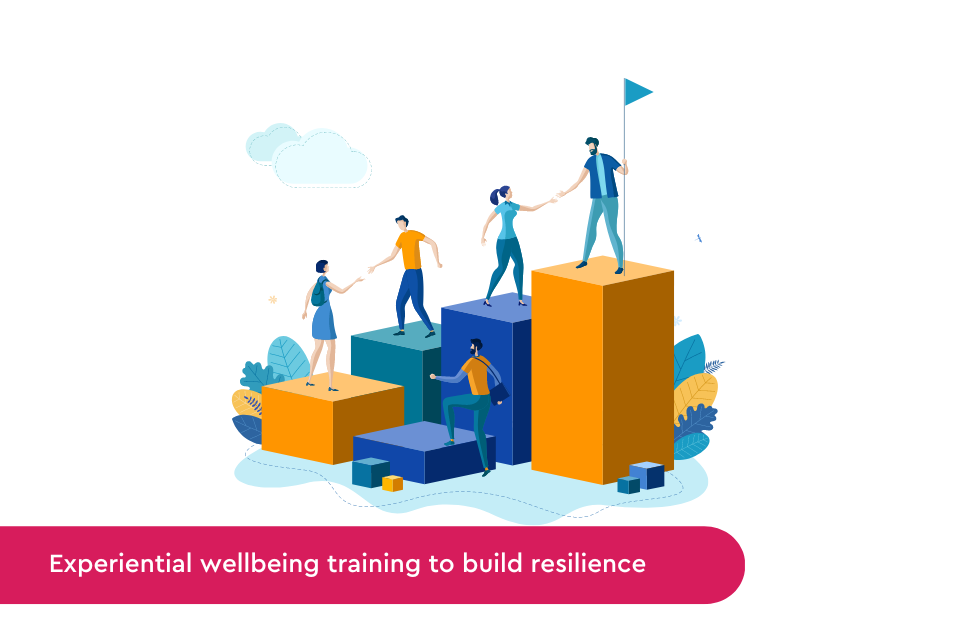“Perfection is the enemy of progress,’”said Winston Churchill
Post-pandemic, new ways of working and a cost-of-living crisis have impacted the way we work, interact, and ultimately has created significant change at home and at work. Are we trying too hard to make things perfect?
With that in mind and with employee wellbeing at the forefront, it feels right to revisit this well-known quote from Winston Churchill.
So, what does it mean and how can we apply it at work today? How can we enable our staff to work smarter, deliver quality and on time, especially with flexible hours and remote working?
Perfection: the state of being complete and correct in every way
Progress: the process of gradually improving or getting nearer to achieving or completing something.
In my opinion, there is no real way to reach perfection. Perfection will always be on the move. It is influenced by people’s opinions and is therefore subjective. It will change and adapt based on its influences: what is happening at the time, who is involved and what has already been achieved.
At home, perfection is a difficult concept but place perfectionism into a work scenario and it is near impossible with the number of stakeholders involved.
But progress, progress helps you to move and to head in the right direction. To constantly build on, adapt and improve to reach your individual or collective goal. Progress allows you to look at what is and isn’t working whereas perfection is a set, potentially non-ideal way to achieve a goal.
One of the problems with perfection is differing expectations.
We’ve already mentioned perfection is subjective so maybe it is worth thinking about the fact that your employees or employer’s version of what needs to be done and to what standard might be different from yours.
This can be difficult to navigate in the workplace, whatever your circumstances; remote working, not being in the office at the same time, being micro-managed, or being asked to do things that you feel are unnecessary.
So, what can we do? We can talk about it! It can be helpful for both employer and employee to ask clear questions about a project or anything that has a certain degree of interpretation attached to it. Expectations can be clearly defined, or we can all ask for and give feedback.
You may have been sitting there worrying about whether what you have produced is good enough, or not ready to share a piece of work when it might be just what is needed.
Equally, what if your employers’ expectations are higher than yours? You won’t know if it is good enough or ‘perfect’ enough until you submit it. So, if you wait until the deadline, you won’t have time to improve. One great response to this problem is to create check-ins and ask for feedback to make sure everyone is on the same page.
And let’s flip that around the other way. What if you, the employee, have higher expectations than your employers? This could have a negative impact such as not feeling valued when you submit your work. It all boils down to clarity, and creating clarity within your team around standards and expectations.
For me, the biggest problem is perfection creates a blockage in my mind and I’m not able to start a piece of work. I can find unreasonable expectations paralysing.
Frustratingly this is primarily true when constructing emails. It should take a few minutes to get something down and the email sent, but instead, I can waste time on retyping in the hope of getting the tone correct.
Like our famous quote by Churchill, Clare Turner, founder of huunuu, often says;
“Don’t let great get in the way of good.”
I am always so grateful to be reminded of this because often good is good enough and then I’m able to move on to the next thing, to keep working and improving.
This philosophy and level of communication (and recommunication) when needed creates a work environment that pulls down barriers and enables action. We are always learning and improving.
Similarly, when creating a piece of work that you know is going to be shared between colleagues you can get hung up on perfection. Judgement is always a worry, but it is during those moments that it is worth remembering collective goals.
It is not just down to you. Utilise other people. If you focus on taking a step in the right direction you can remove the idea of what you think something should be. Don’t be embarrassed by what you have achieved because it isn’t perfect. A starting point is always helpful.
An easy way to implement this ideal into a work environment is through language. We often use the word ‘strawman’ if we know it is going to be a piece others might edit and feed into. This reminds us that it is a starting point, it does not have to be perfect.
Perfection can mean we are unsatisfied with our work; we deprioritise or over-prioritise and make poor decisions. It can hold us up.
Another way to combat and help these issues is to use a tool such as a bullet journal. ‘The bullet journal is a ‘Mindfulness practice disguised as a productivity system,’ says Ryder Carroll.
The bullet journal can help you organise your thoughts and tasks in one place. It means you intentionally plan with a focus on things worth your time.
The reason this works so well for me is I know I have a set period to get something done. I can’t delay because of worries about perfection.
Some final thoughts on progress rather than perfection
Don’t be afraid to try
We are always learning
Perfection is static
Adaptation and growth are enviable
In a world that is always moving and providing its own obstacles don’t let perfection get in the way of your progress.




